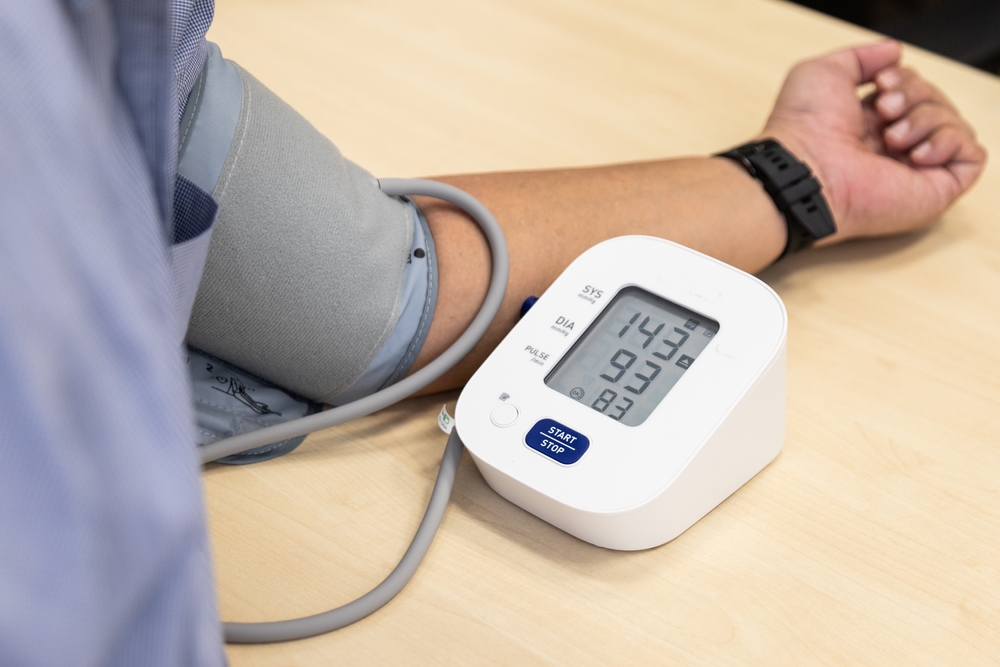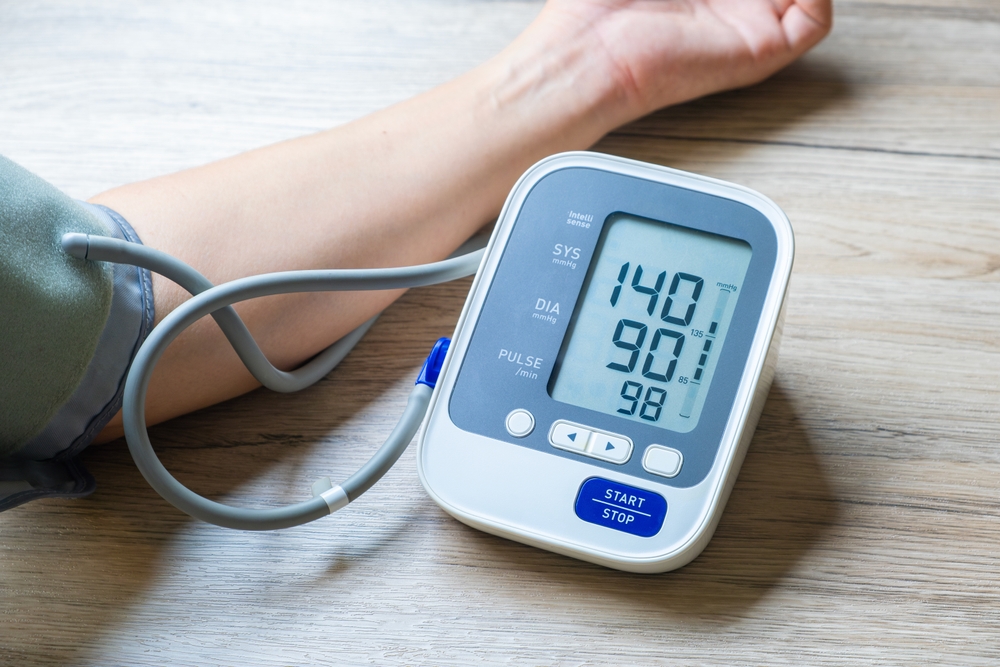Last Updated:
June 4th, 2025
Blood Pressure Changes Caused by Addiction
High blood pressure might not sound like the most urgent symptom of drug or alcohol addiction, but it can quietly do real damage over time. Many people don’t realise how much addictive substances affect their heart and blood vessels until something goes wrong. Whether it builds slowly or spikes suddenly, increased blood pressure caused by substance abuse can have dangerous and even fatal consequences. The good news is that with the right treatment, both high blood pressure and addiction can be managed before they spiral out of control.

What does high blood pressure mean?
High blood pressure, also known as hypertension, means your heart is working harder than it should to pump blood around your body. Your blood travels through a network of tubes called arteries, carrying oxygen and critical nutrients to your organs and cells. But if the pressure inside the tubes is too high for too long, it starts to wear them down. This can lead to serious health problems like heart disease, kidney damage or strokes.
Many people don’t feel high blood pressure at first, which is what makes it so dangerous. You might feel fine until you suddenly feel dizzy, experience chest pains or have a cardiac arrest. That is because increased blood pressure builds gradually, slowly damaging your arteries and organs day by day.
There are various things which can cause increased blood pressure, including stress, a poor diet, a lack of exercise and alcohol and drug addiction. Doctors use a blood pressure chart to measure your readings and this is one of the key early ways to identify potential medical conditions.
How can addiction cause high blood pressure?
Alcohol and blood pressure are closely linked. Drinking heavily over a long period of time can stiffen your blood vessels, cause your body to retain sodium and increase pressure in your arteries, all of which can cause you a lot of harm.
Problems with drugs and blood pressure are also closely connected and this can be a dangerous combination. Stimulant drugs like cocaine, crack, ecstasy, meth and some ADHD medications can all cause sudden surges in blood pressure by speeding up your heart and tightening your blood vessels. These effects can be especially harmful when the drugs are mixed, taken in large doses or when you drink alcohol at the same time.
Even prescription medications such as benzodiazepines or opioids can contribute to high blood pressure symptoms, particularly during detox when your body is trying to regulate itself again. Stress, agitation and physical strain during withdrawal can all drive up what may already be dangerously high blood pressure from the original substance use.
No matter the substance, ignoring high blood pressure symptoms is an incredibly dangerous game and could prevent the harm from being reversed.
What are some common signs of high blood pressure to look out for?
High blood pressure doesn’t always come with obvious warning signs, which is why it is often called a “silent killer.” But when it is due to drug or alcohol use, there are some telltale high blood pressure symptoms that you should address immediately:
High blood pressure symptoms can vary from person to person but whatever your symptoms, especially if they are persistent or you are experiencing multiple issues, you should seek professional medical or rehab treatment.
Why is high blood pressure dangerous if left unaddressed?
Ignoring high blood pressure is a serious mistake as it can cause long-term damage to your body which can be irreversible if left too long.
When drugs and alcohol increase your blood pressure repeatedly, the walls of your arteries can thicken and harden. This means your heart has to work harder to pump blood through the smaller tubes, and this excess strain can lead to major complications like heart attacks, strokes or aneurysms.
Many people think that high blood pressure can only affect the heart but various other organs and systems can be impacted too. For example, if not enough oxygen reaches your brain, you may experience cognitive issues such as confusion, memory problems or even strokes.
Your kidneys also rely on a constant supply of oxygen-rich blood to filter waste effectively but when increased blood pressure damages the arteries leading to the kidneys, it can result in kidney disease or even kidney failure
Your eyes are also at risk. High blood pressure can cause the blood vessels in the eyes to thicken, narrow or tear, leading to vision problems or even blindness.

A healthy lifestyle and regular monitoring and management of your blood pressure are crucial for preventing these potentially life-threatening complications.
What should I do if I or a loved one is experiencing high blood pressure from addiction?
If you are experiencing high blood pressure symptoms, especially if you are using drugs or drinking a lot, don’t wait for these symptoms to escalate. Early intervention is key to preventing long-term health issues and high blood pressure damage that can’t be fixed. Addiction Helper can help you take control of your health and discuss any concerns related to substance use. Contact us today to discuss any issues you have, and we can help you find the right solutions.
Our compassionate team are ready and available to take your call, and guide you towards lasting the lasting addiction recovery you deserve.
Frequently Asked Questions
(Click here to see works cited)
- NHS. “High blood pressure.” NHS, https://www.nhs.uk/conditions/high-blood-pressure/. Accessed 11 May 2025.

